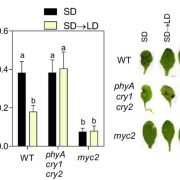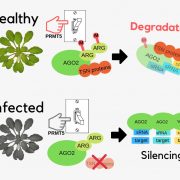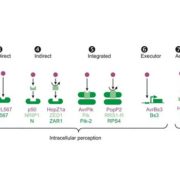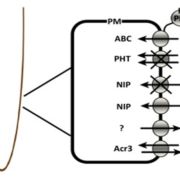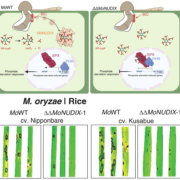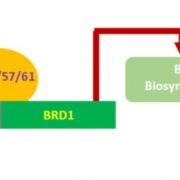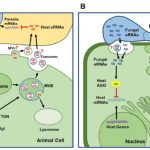Review: Harnessing atmospheric nitrogen for cereal crop production ($) (Curr. Opin. Biotechnol.)
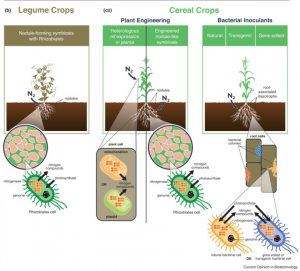 Nitrogen demands for plant growth are accomplished through fertilizers or biological nitrogen fixation. Industrial production of nitrogen fertilizer is expensive and causes pollution due to leaching of unused fertilizer. In this review, Bloch et al. discuss the current status of biological nitrogen fixation and the prospects of biological nitrogen fixation in cereal crops like maize. Leguminous crops like soybean can form a symbiotic relationship with nitrogen-fixing bacteria in the soil to supplement nitrogen demand. Early ancestral cereals were recently shown to associate itself with nitrogen-fixing bacteria. Efforts are being taken to enhance the biological nitrogen fixation in cereal crops by a) engineering plants to be able to form a symbiosis with nitrogen-fixing bacteria, and b) identificating and utilizating nitrogen-fixing bacteria to supplement plant nitrogen requirement. Using molecular approaches like synthetic biology, gene editing, genetics and recombinant DNA technology, multiple research labs are progressing towards this goal. The authors suggest that by the year 2050, much progress will be achieved towards sustainable ways to engineer bacteria that could enhance nitrogen fixation. The adaptability of these rhizosphere bacteria to the natural environment and meeting the regulations apart from managing efficient fertilizer usage will be critical in achieving this. (Summary by Suresh Damodaran) Curr. Opin. Biotechnol. 10.1016/j.copbio.2019.09.024
Nitrogen demands for plant growth are accomplished through fertilizers or biological nitrogen fixation. Industrial production of nitrogen fertilizer is expensive and causes pollution due to leaching of unused fertilizer. In this review, Bloch et al. discuss the current status of biological nitrogen fixation and the prospects of biological nitrogen fixation in cereal crops like maize. Leguminous crops like soybean can form a symbiotic relationship with nitrogen-fixing bacteria in the soil to supplement nitrogen demand. Early ancestral cereals were recently shown to associate itself with nitrogen-fixing bacteria. Efforts are being taken to enhance the biological nitrogen fixation in cereal crops by a) engineering plants to be able to form a symbiosis with nitrogen-fixing bacteria, and b) identificating and utilizating nitrogen-fixing bacteria to supplement plant nitrogen requirement. Using molecular approaches like synthetic biology, gene editing, genetics and recombinant DNA technology, multiple research labs are progressing towards this goal. The authors suggest that by the year 2050, much progress will be achieved towards sustainable ways to engineer bacteria that could enhance nitrogen fixation. The adaptability of these rhizosphere bacteria to the natural environment and meeting the regulations apart from managing efficient fertilizer usage will be critical in achieving this. (Summary by Suresh Damodaran) Curr. Opin. Biotechnol. 10.1016/j.copbio.2019.09.024


